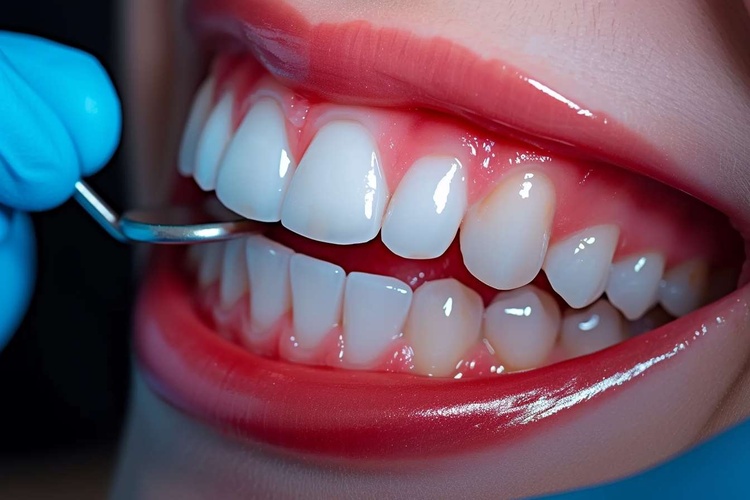Complete Guide to Modern Tooth Replacement Solutions
Modern tooth replacement technology has revolutionized dentistry by providing permanent solutions for missing teeth that closely mimic natural tooth function. Unlike traditional dentures or bridges, advanced implant systems are surgically placed titanium posts that integrate with the jawbone, creating a stable foundation for replacement teeth. This innovative approach not only restores your smile but also maintains facial structure and prevents bone loss that typically occurs after tooth loss.

How Modern Implants Improve Oral Health
Advanced tooth replacement systems offer significant oral health advantages beyond simple restoration. When a tooth is lost, the surrounding bone begins to deteriorate due to lack of stimulation. Modern implants provide the necessary stimulation to maintain bone density and prevent facial collapse. They also eliminate the gaps where bacteria can accumulate, reducing the risk of gum disease and tooth decay in adjacent teeth. Unlike bridges, implants don’t require grinding down healthy neighboring teeth, preserving your natural tooth structure.
The integration process, known as osseointegration, creates a bond between the titanium implant and your jawbone that’s nearly as strong as a natural tooth root. This stability allows for proper chewing function, which aids digestion and overall health. Additionally, implants help maintain proper tooth alignment by preventing remaining teeth from shifting into empty spaces.
Benefits Of Choosing Modern Implant Technology
The advantages of contemporary implant systems extend far beyond aesthetics. They provide unmatched durability and functionality compared to other tooth replacement options. Implants allow you to eat your favorite foods without restriction, speak clearly without worry about slipping dentures, and maintain your oral hygiene routine with regular brushing and flossing.
Implants also offer psychological benefits by restoring confidence in your smile and eliminating the embarrassment often associated with missing teeth or ill-fitting dentures. They’re designed to look, feel, and function like natural teeth, making them virtually indistinguishable from your original teeth. The permanent nature of implants means no daily removal or special cleaning solutions are required.
Understanding Modern Implant Materials
Contemporary tooth replacement systems are primarily made from titanium, a biocompatible metal that naturally fuses with bone tissue. Titanium’s unique properties make it ideal for implants because it’s lightweight, strong, and resistant to corrosion. The surface of titanium implants is often treated to enhance osseointegration, with various textures and coatings that promote faster and stronger bone bonding.
Some newer systems use zirconia, a ceramic material that offers excellent aesthetics and biocompatibility. Zirconia implants are particularly beneficial for patients with metal sensitivities or those seeking a completely metal-free solution. The crown portion can be made from various materials including porcelain, ceramic, or porcelain-fused-to-metal, each offering different benefits in terms of durability and appearance.
Longevity And Maintenance Of Implant Systems
With proper care, modern implant systems can last a lifetime. Studies show success rates of over 95% for implants, making them one of the most reliable procedures available. The key to implant longevity lies in maintaining excellent oral hygiene and regular checkups. Daily brushing and flossing around the implant site are essential to prevent peri-implantitis, an infection that can compromise the implant’s stability.
Regular professional cleanings and examinations allow your dentist to monitor the implant’s condition and address any issues early. Avoiding harmful habits like smoking, grinding teeth, or chewing on hard objects helps preserve both the implant and surrounding tissues. Most patients find that caring for implants is easier than maintaining natural teeth since implants cannot develop cavities.
Common Myths About Modern Tooth Replacement
Several misconceptions surround implant technology that may prevent people from considering this excellent treatment option. One common myth is that the procedure is painful; however, most patients report minimal discomfort during and after treatment, which is typically less than tooth extraction. Another misconception is that implants are only for older adults, when in fact, anyone with fully developed jawbones can be a candidate.
Some people believe implants require extensive maintenance or special products, but they actually require the same care as natural teeth. The myth that implants are prohibitively expensive often overlooks their long-term value compared to repeated repairs or replacements of other tooth replacement options. Finally, concerns about implant rejection are largely unfounded, as titanium has an extremely high biocompatibility rate.
| Provider Type | Average Cost Range | Treatment Duration |
|---|---|---|
| General Dentist | $3,000 - $4,500 | 3-6 months |
| Oral Surgeon | $4,000 - $6,000 | 3-4 months |
| Periodontist | $4,500 - $6,500 | 4-6 months |
| Prosthodontist | $5,000 - $7,000 | 4-8 months |
Prices, rates, or cost estimates mentioned in this article are based on the latest available information but may change over time. Independent research is advised before making financial decisions.
Modern implant technology represents a significant advancement in restorative dentistry, offering a permanent solution that preserves oral health while restoring function and aesthetics. The combination of biocompatible materials, proven surgical techniques, and proper maintenance creates an investment in your oral health that can provide benefits for decades. Understanding the facts about implant systems helps dispel common myths and enables informed decision-making about this transformative treatment option.




